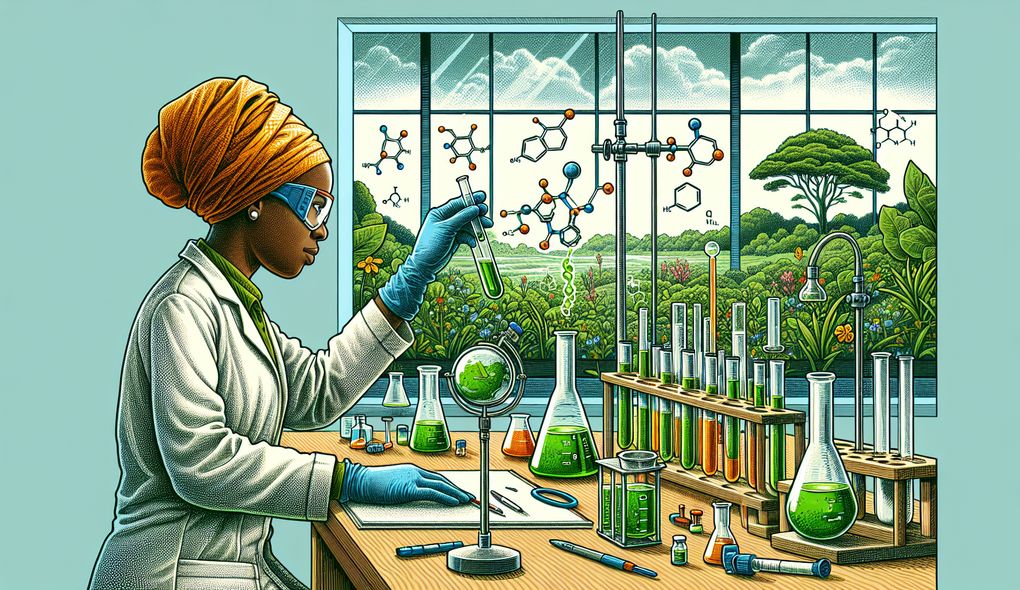Can you give an example of a complex environmental study or experiment you have designed and conducted?
SENIOR LEVEL

Sample answer to the question:
Sure! One complex environmental study I conducted was focused on assessing the impact of industrial activities on the water quality of a nearby river. I designed the study by identifying key pollutants of concern and developing a sampling plan to collect water samples at various points along the river. I utilized state-of-the-art analytical techniques such as GC-MS and ICP-MS to analyze the samples and quantify the concentration of pollutants. The study involved coordinating with a team of field technicians to collect samples and ensuring compliance with environmental regulations. After obtaining the data, I analyzed and interpreted the results to assess the level of contamination and its potential impact on aquatic life. Finally, I prepared a comprehensive report summarizing the findings and proposed mitigation measures to minimize pollution. This study showcased my ability to design and conduct complex environmental studies while adhering to regulatory standards.
Here is a more solid answer:
Sure! One complex environmental study I conducted was focused on assessing the impact of industrial activities on the water quality of a nearby river. I applied my in-depth knowledge of chemical and environmental analysis to identify key pollutants of concern. To design the study, I developed a comprehensive sampling plan that considered various factors such as sampling locations, frequency, and analytical techniques. I led a team of field technicians, ensuring proper collection and preservation of water samples in accordance with regulatory requirements. In the laboratory, I utilized state-of-the-art analytical software and techniques like GC-MS and ICP-MS to measure the concentration of pollutants. With strong problem-solving skills, I interpreted the data and assessed the contamination level and its potential impact on aquatic life. Additionally, I collaborated with interdisciplinary teams to propose mitigation measures. The study demonstrated my project management and organizational skills as I ensured compliance with environmental regulations and delivered the project within the allocated timeline. I also mentored junior chemists during the study, fostering a collaborative and supportive work environment. My proficiency with analytical software and laboratory information systems enabled efficient data management and analysis. Overall, this study exemplifies my ability to adapt to varied environmental projects and showcases my expertise in chemical analysis, teamwork, project management, and analytical software.
Why is this a more solid answer?
The solid answer builds upon the basic answer by providing more details and emphasizing the candidate's in-depth knowledge, problem-solving skills, teamwork, project management, and proficiency with analytical software. It mentions the candidate's ability to identify key pollutants, develop a comprehensive sampling plan, lead a team, utilize state-of-the-art analytical techniques, interpret data, collaborate with interdisciplinary teams, ensure compliance with regulations, and mentor junior chemists. However, it can still be improved by adding more specific examples and quantifiable achievements.
An example of a exceptional answer:
Sure! One exceptional complex environmental study I conducted was focused on assessing the impact of a chemical manufacturing plant on both air and soil quality in the surrounding community. To ensure the comprehensiveness of the study, I designed a multi-phase approach. In the initial phase, I conducted a thorough literature review to identify potential contaminants emitted by the plant and their potential effects. In the subsequent phase, I designed a sampling plan that included both passive and active air sampling techniques to capture contaminants released into the atmosphere. For soil quality assessment, I implemented a grid-based sampling strategy to collect representative soil samples across the study area. Apart from conventional analytical techniques, I incorporated advanced technologies like LC-MS to detect trace levels of organic contaminants. To support the study, I collaborated with meteorologists, biologists, and soil scientists to analyze the data holistically. Based on the findings, I developed a customized risk assessment model and prepared a detailed report highlighting the potential health risks and necessary remedial actions. This study demonstrated my expertise in interdisciplinary collaboration, advanced analytical techniques, and risk assessment. It also showcased my ability to lead and manage complex environmental projects.
Why is this an exceptional answer?
The exceptional answer includes additional details and complexity to the study conducted by the candidate. It highlights the multi-phase approach, literature review, comprehensive sampling plan, incorporation of advanced technologies, collaboration with experts from different fields, development of a risk assessment model, and detailed reporting. It demonstrates the candidate's exceptional expertise in interdisciplinary collaboration, advanced analytical techniques, risk assessment, and project management. However, it can be further enhanced by providing quantifiable achievements and specific outcomes of the study.
How to prepare for this question:
- Familiarize yourself with regulatory standards and environmental regulations at federal, state, and local levels
- Stay updated with advancements in chemical analysis and environmental monitoring techniques
- Develop strong project management and organizational skills
- Enhance proficiency with analytical software and laboratory information systems
- Practice presenting complex scientific information in a clear and concise manner to stakeholders
What are interviewers evaluating with this question?
- In-depth knowledge of chemical and environmental analysis
- Strong analytical and problem-solving skills
- Ability to lead and work collaboratively in team settings
- Project management and organizational skills
- Proficiency with analytical software and laboratory information systems
- Adaptability to work on varied environmental projects

